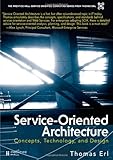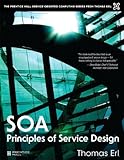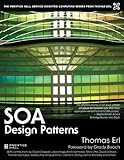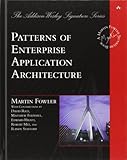
Every business is dependent on technology for smooth operation. The service industry in the Information Technology industry has helped several companies and individuals build excellent career. The service-based industry has its specific requirements and requires some unique features for performance improvement. Service Oriented Architecture is one of the most popular architecture used for service-oriented development. The main idea is to revolve around service betterment and different outcomes of services.
SOA is often used in logical business activities and it brings together different services required to perform any given task. The SOA architecture has provisions for code reusability and offers better security measures. If you are planning to become a software architect, it is important to have an excellent understanding of the service oriented architecture. Most of the companies require an in-depth knowledge of SOA before hiring professionals for different posts. You can start learning the basics of SOA with different books available in the market.
Service-Oriented Architecture (SOA): Concepts, Technology, and Design
(By: Thomas Erl )
One of the best ways to understand SOA is to study different case studies and that is what exactly this book has to offer. You can learn different case studies and latest technologies that have been implemented into real world scenarios. It starts with a step-by-step explanation of service-oriented design and service-oriented analysis. You can learn about the previous architectures in the service industry and features that superimposes SOA against these architectures. The book involves logical explanation and non-technical analogies to explain difficult concepts.
SOA: Principles of Service Design
(By: Thomas Erl )
Service oriented industry is a different paradigm in the development industry. This book starts with an explanation of different principles and technological concepts of the SOA architecture. You will understand different aspects of SOA including service abstraction, service coupling, service autonomy, service discovery, service contracts, and service reusability. It explains crucial supporting practices, object-orientation, service orientation, and mapping service orientation for achieving the strategic goals of a system. The book covers different examples and real world problems. You can develop an analytic understanding and suitability of different SOA services in any given problem.
SOA Design Patterns (Prentice Hall Service-Oriented Computing Series from Thomas ERL)
(By: Thomas Erl )
The software industry has undergone multiple changes in the past two decades and this book is perfect to understand these developments. It starts with an explanation of the patterns and principles of abstractions in different SOA services. This book covers the reasons out of which SOA has emerged as the most popular architecture for enterprise systems. All the concepts are explained in a structural manner while maintaining proper context. If you are preparing for an interview for software architect, it might help to gain better insights into these concepts and explain them with proper examples.
Service Design Patterns: Fundamental Design Solutions for SOAP/WSDL and RESTful Web Services
(By: Robert Daigneau )
One of the core design principles of SOA architecture is to develop an architecture that can offer consistent results for a similar set of problems. You can develop an excellent understanding of important topics such as caching, authentication, logging, and validation. It explains different types of API styles and the best style for any given problem. It answers one of the most complex questions in the current development sector i.e. how to develop systems that can keep up with the evolving requirements of business logic. You develop an understanding of the use of web services by different clients and the best practices to streamline these operations.
Patterns of Enterprise Application Architecture
(By: Martin Fowler )
Enterprise application development is one of the quickest developing segments of SOA and this book explains important lessons about application architecture. It explains some of the most common problems faced by enterprise application developers and the solutions offered within this book are applicable to nearly every enterprise application. The first section of the book comprises of different tutorials covering the enterprise development concepts. The next part of the book offers an excellent explanation of the patterns and every pattern is accompanied with a valid example.
For any professional planning to step into the software architecture, it is important to move ahead of the technologies and develop an understanding of the service-oriented architecture. Most of the developers end up with multiple challenges because of a poor understanding of software architecture. Every problem has a different solution and it might not be sufficient to learn some case studies. You need an in-depth knowledge of the SOA, which is available in this book.




